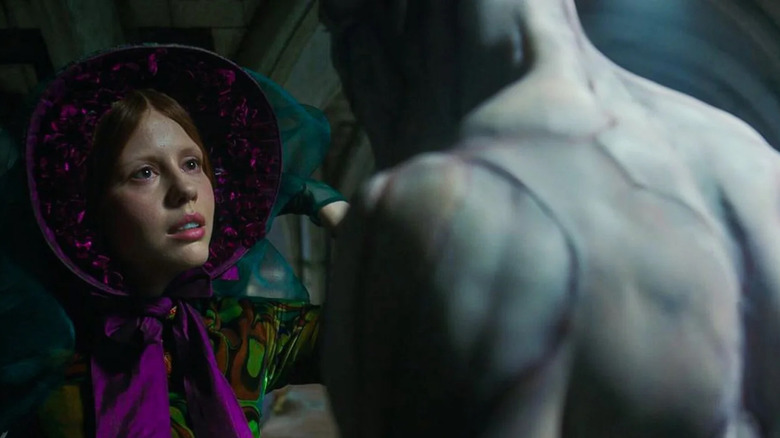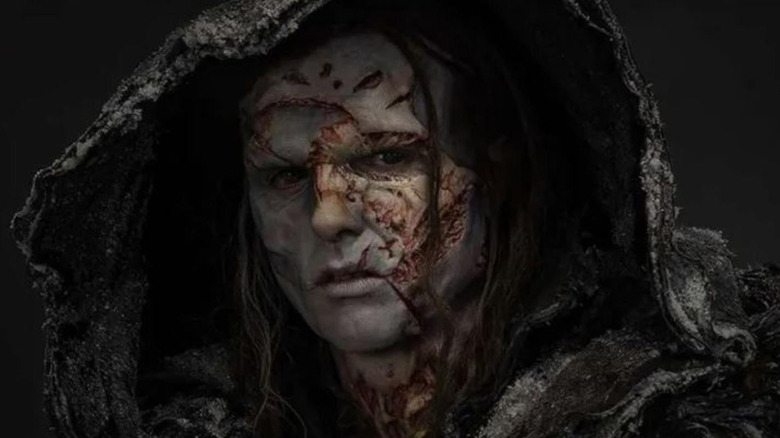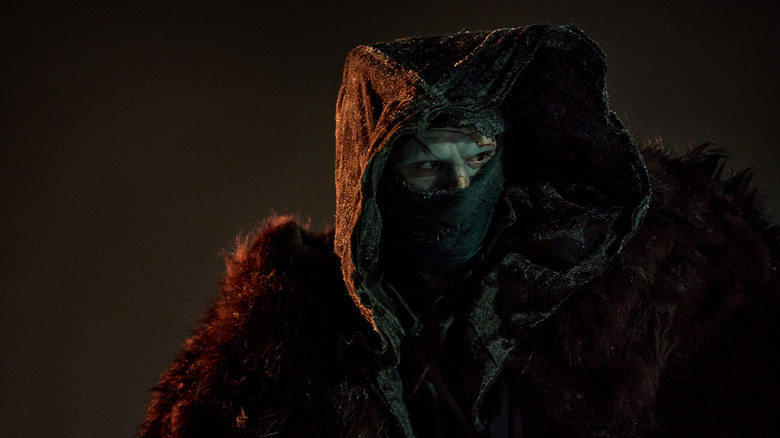Guillermo Del Toro's Frankenstein Doubles Down On The Most Important Part Of The Classic Horror Story
Spoilers for "Frankenstein" 2025 follow.
"Since childhood, I've been faithful to monsters. I have been saved and absolved by them, because monsters, I believe, are patron saints of our blissful imperfection, and they allow and embody the possibility of failing."
So said Guillermo del Toro when he won the Best Director Golden Globe for "The Shape of Water." Del Toro is a filmmaker who has always had an affinity for monsters and is clearly fascinated with portraying them in complex ways. To del Toro, movie monsters aren't inherently evil. More often than not, they're misunderstood.
Del Toro takes his monster sympathies to the next level with his new adaptation of "Frankenstein." The filmmaker has been trying to adapt Mary Shelley's iconic novel for years, and Netflix finally gave him the chance. The end result is a typically del Toro-esque movie with arguably the most sympathetic version of Frankenstein's Monster, AKA the Creature, ever captured on film.
Guillermo del Toro's Frankenstein is extremely sympathetic toward the Creature
The Creature has always had a touch of sympathy, even in Shelley's original text. He's thrust into the world and immediately abandoned by his creator, forced to fend for himself against people who want to kill him. There have been many movie adaptations of the book, or movies that happen to feature the Creature as a character, and in almost every single one, there's at least something sympathetic about him. Sure, he may be a reanimated corpse stitched together from various body parts, but he's not so bad!
That said, while other movies have painted a sympathetic portrait of the character, they also don't shy away from his monstrous nature — nor does Shelley. In the book, and in several film adaptations, the Creature violently murders Victor Frankenstein's young brother and then frames an innocent woman for the crime, leading to that woman's execution, all in the name of getting revenge against Victor. Later, he kills Victor's beloved, Elizabeth. You understand why The Creature is committing these murders, but they're still horrible deeds. And Boris Karloff's famous take on the Creature accidentally drowns a little girl because he doesn't undertand what he's doing.
But del Toro's approach changes things up. In his film, Victor, as played by Oscar Isaac, is a smug jerk who treats his creation like garbage. Del Toro grafts an interesting cycle of abuse onto the narrative, showing us that Victor was abused by his father (Charles Dance) as a child, and Victor then passed that abuse down to his own "son," the Creature.
Jacob Elordi makes the Creature a tragic, sad, likeable monster
As played by Jacob Elordi, del Toro's Creature is a tragic, gothic sad boy — he loves to read poetry, hang out with animals, and just wants a friend. Sympathy is key to the character in almost any form, and much has been made about how Shelley's book makes Victor monstrous and the monster likable. But del Toro takes it even further. While his "Frankenstein" doesn't shy away from gory violence, he also makes sure to show us that every killing Elordi's Creature commits is done in self-defense.
Shelley's novel has a framing device wherein a dying Victor recounts the whole story, but del Toro one-ups that by having both Victor and the Creature narrate the film. By shifting the second half of the movie to the Creature's POV, del Toro's movie makes the character even more sympathetic as we watch him navigate a world he simply does not understand, full of people trying to harm him because of his appearance. To top it all off, del Toro lets his Creature survive. Most adaptations kill off the character, and even Shelley's novel ends with the Creature saying he intends to burn himself to death on a pyre.
But in del Toro's movie, the Creature can't die. Not even a blast of dynamite is enough to destroy him. He will seemingly live forever. And while that could be more of a curse than a blessing — he's still alone, after all — del Toro allows the character a moment of peace, smiling as the sun rises and warms his serene face. It's kind of beautiful.


